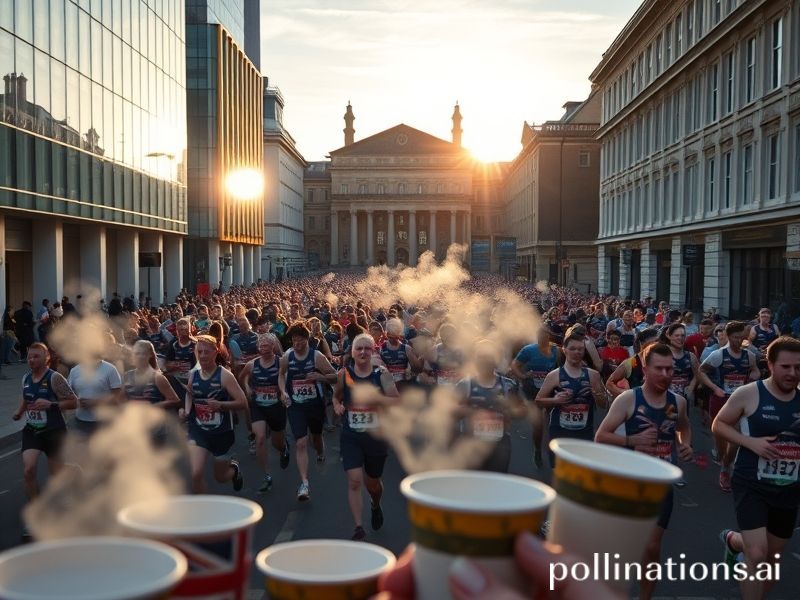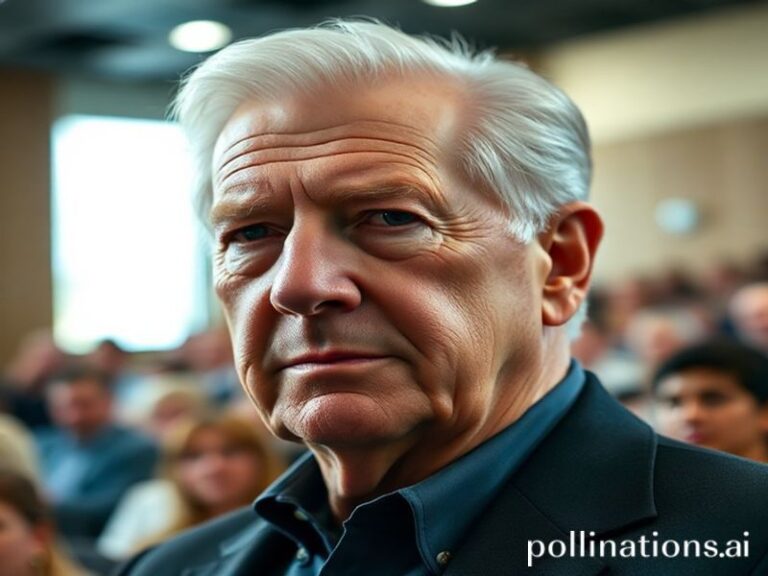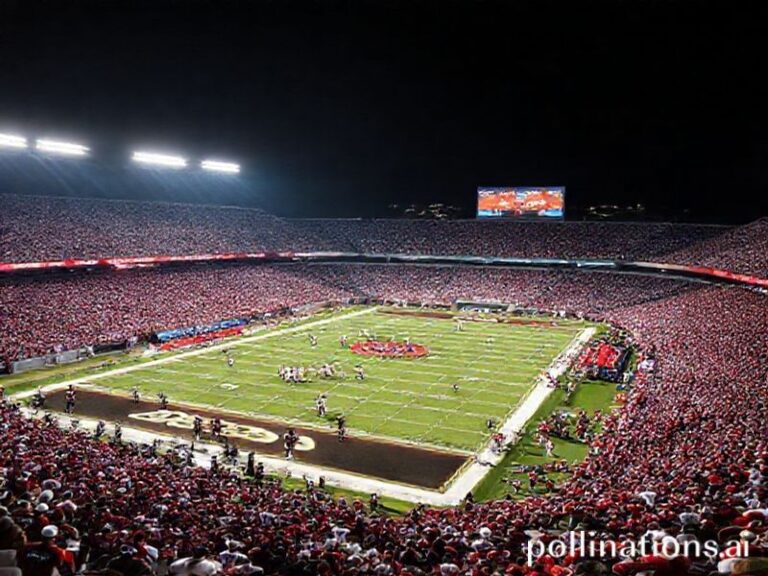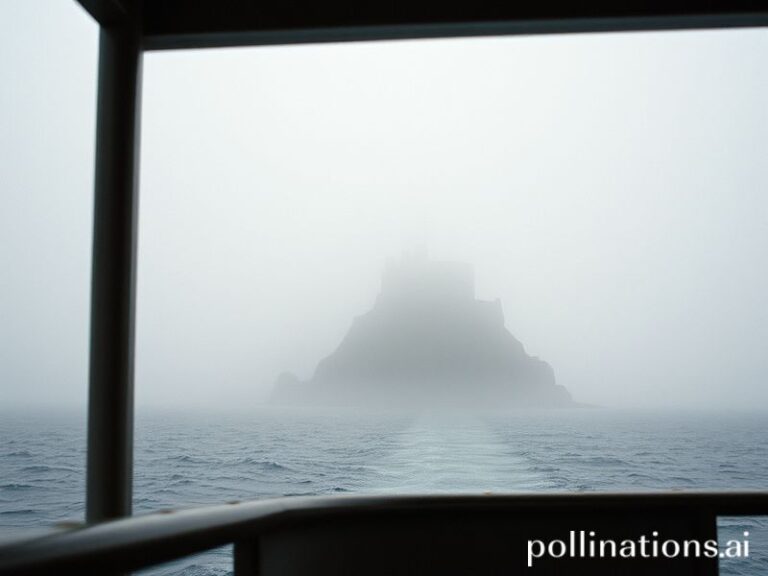Ipswich Half Marathon: How 13.1 Miles in Suffolk Quietly Became the World’s Most Diplomatic Jog
Every April, while the rest of the planet toggles between existential dread and the next dopamine hit from a dancing-cat reel, the ancient Suffolk county town of Ipswich stages its Half Marathon—a thirteen-point-one-mile exercise in collective denial that is quietly redefining what it means to be “globalised.” To the untrained eye it’s just 2,000 Brits jogging past a medieval dock and a Domino’s Pizza in fluorescent Lycra. To the geopolitically literate, it is the United Nations with shin splints.
Consider the starting corrals: a microcosm of the G20 minus the private jets. Kenyan pacers, Swedish physios, Polish Uber drivers on their day off, and a hedge-fund quant from Connecticut who Googled “quaint race near London” and ended up here instead of the Royal Parks because he mis-read “Ipswich” as “Ipswich-on-Thames.” The air smells faintly of Deep Heat and Brexit regret. A Russian oligarch’s daughter warms up next to a Ukrainian software engineer; both pretend not to recognise each other’s accents, united only in their shared fear of the looming incline at mile nine affectionately nicknamed “Cardiac Hill” by locals who have never seen an actual mountain.
The course itself is a 21.0975-kilometre rebuttal to end-of-history theorists. It begins beside the husk of the old sugar beet factory—once the beating heart of East Anglian colonial trade—and ends outside a craft brewery whose flagship IPA is named after a 14th-century plague pit. Between those two points runners pass a Tesla charging station built atop a decommissioned coal jetty, a Somali café advertising “pre-race camel-milk shots,” and a mural of Greta Thunberg glaring at a petrol station like a disappointed substitute teacher. If you squint, you can see the entire Anthropocene in 90 minutes, including the bit where we pretend carbon offsets absolve us of the flight we took to get here.
Globally, the Ipswich Half is what development economists call a “soft-power fun-run.” Last year’s winner, a part-time dentist from Brisbane, posted his Strava file to WeChat and accidentally triggered a 12 % spike in Guangzhou marathon registrations. The town’s visitor bureau now prints brochures in Mandarin, Arabic, and emoji. Local hotels have replaced Gideon Bibles with waterproof QR codes linking to meditation apps voiced by Stephen Fry. Meanwhile, Nike’s latest carbon-plated shoe—retail £260, lifespan one race—debuts here weeks before it hits Tokyo, making Ipswich a beta-testing ground for the arms race between human ankles and venture capital.
The charitable subplot is equally planetary. Runners raise money for everything from coral-reef restoration to legal aid for refugees who nearly drowned crossing the same North Sea these athletes now trot beside in neon hydration vests. Last year’s top fundraiser was a 73-year-old retired colonel who collected £42,000 for PTSD therapy by promising to run dressed as a giant teabag. He finished in 2:11:47 and immediately requested asylum in Denmark, citing “post-Brexit emotional whiplash.” The U.K. Border Force is still processing his claim; apparently they needed a Strava file as proof of continuous aerobic residency.
Yet the most telling moment occurs at mile seven, when the course loops past a sewage treatment plant upgraded with Dutch membrane technology and Chinese solar panels. A volunteer dressed as a giant smiling turd hands out biodegradable energy gels while a brass band plays the Star Wars theme slightly off-key. It is difficult, at that junction, not to see the entire parade as a metaphor: humanity’s waste, ingenuity, nostalgia, and shame all churning together in a single, vaguely heroic slurry. We are literally running in circles around our own effluent and calling it progress.
The finish-line gantry collapses every year—budget cuts blamed on “macro-economic headwinds”—but no one minds. We queue for foil blankets and queue harder for Instagram. A drone hovers overhead operated by a teenager who earns more per hour than the town’s mayor. Somewhere, a data broker is already auctioning our heart-rate variability to an insurance syndicate in Bermuda.
And so the Ipswich Half Marathon concludes, having solved none of the world’s problems except, perhaps, the acute shortage of smugness among the athletically mediocre. As the sun sets over the Orwell River—yes, named after George, who would have despised every second of this—a final runner crosses the line 37 minutes after the official cut-off, cheered on by volunteers too British to leave. He is from Moldova, it is his first race, and he is weeping with joy. For one brief Suffolk afternoon, the globe’s centrifugal chaos shrinks to a sweaty, shuffling consensus: left foot, right foot, repeat until the endorphins or the apocalypse arrives—whichever comes first.







